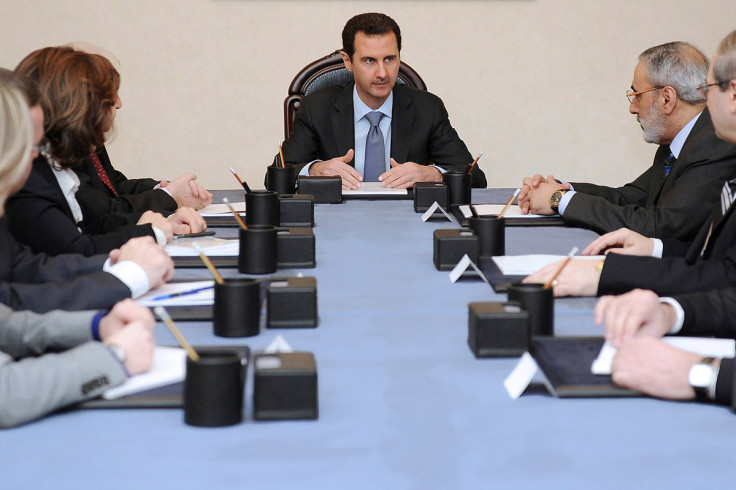Geneva II Talks on Syria: UN Drops Iran Invitation after Boycott Threat
Talks, aimed at ending prolonged civil-war-turned-uprising, to be attended by delegates from 40 countries

The UN has withdrawn its invitation to Iran to attend the "Geneva II" peace talks after the main anti-Assad group, the Syrian National Coalition (SNC), threatened to boycott the upcoming conference.
The SNC announced the boycott after Iran rejected a communique signed by the world's leading powers in 2012, backing the creation of a transitional government in Syria.
Majlis Alaeddin Boroujerdi, chairman of Tehran's National Security and Foreign Policy Committee, said that Iran would repudiate the communique, telling that Iran would attend the Geneva talks "while insisting that it won't accept any preconditions."
UN Secretary-General Ban Ki-moon has said he is "deeply disappointed" with the remarks made by Iran, a staunch ally of Syrian president Bashar al-Assad, over its position on the forthcoming Syria peace talks.
"The statement today in Tehran by the foreign ministry spokesperson fell short by some measure of what the secretary-general expected to hear. The Secretary-General is deeply disappointed by Iranian public statements today that are not at all consistent with that stated commitment," said UN spokesperson Martin Nesirky.
Ban's spokesperson added: "He continues to urge Iran to join the global consensus behind the Geneva Communiqué. Given that it has chosen to remain outside that basic understanding, he has decided that the one-day Montreux gathering will proceed without Iran's participation."
The Secretary-General is deeply disappointed by Iranian public statements today that are not at all consistent with that stated commitment
The surprise last-minute offer extended to Iran by the UN chief to take part in the talks had angered both the US and the western-backed Syrian opposition bloc.
As Syria continues to suffer under the 34-month-long bloody civil war, the conference, better known as the "Geneva II talks" in the Swiss city of Montreux, is seen as a ray of hope in bringing a solution to the conflict. The uprising-turned-civil war has so far claimed nearly 120,000 lives and displaced millions, with no end in sight to the crisis.
The talks, slated to begin on 23 January, will be attended by high-ranking delegates from nearly 40 countries. This will also be the first time representatives of the Syrian regime and the opposition groups will have a face-to-face meeting since the conflict broke out in March 2011.
The talks are a culmination of months-long diplomatic efforts by all involved parties; hence, the absence of anti-Assad groups on the table will jeopardise the entire exercise.
The UN's latest move to withdraw the Iran invitation has been welcomed by the Syrian opposition and the US.
US State Department spokesperson Jen Psaki said: "We are hopeful that, in the wake of today's announcement, all parties can now return to focus on the task at hand, which is bringing an end to the suffering of the Syrian people and beginning a process toward a long-overdue political transition."
Russia, which insisted Iran should participate in the talks, has not yet responded to Ban's withdrawal of the invitation.
© Copyright IBTimes 2025. All rights reserved.






















